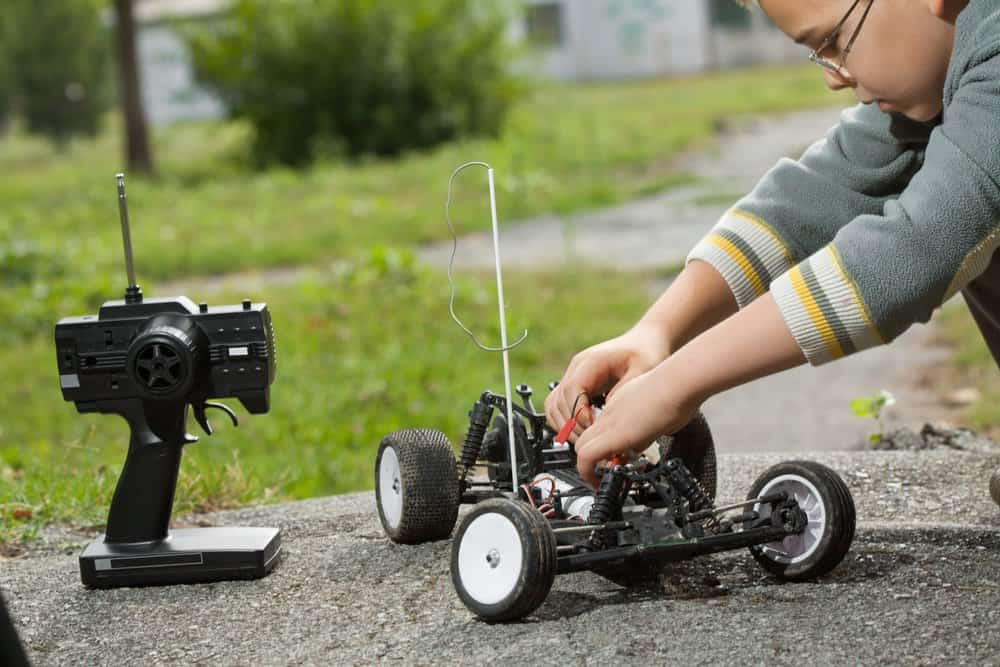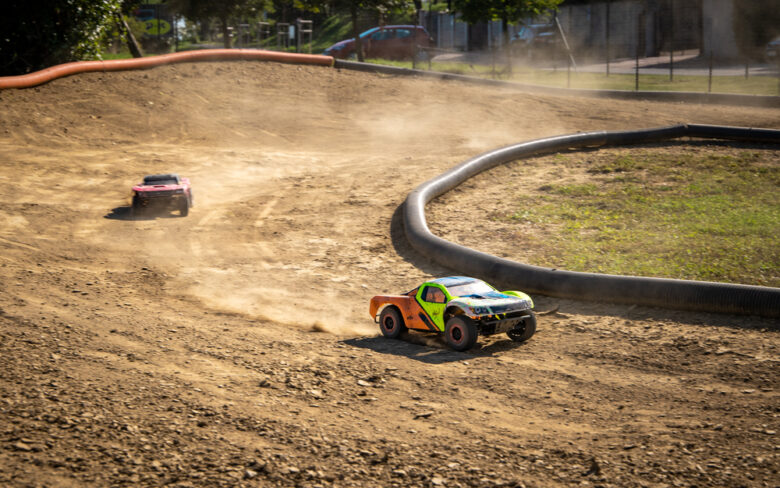When you think of RC cars, you might recall childhood memories of zipping miniature vehicles across your living room. But there’s more to these small wonders than meets the eye. In the world of automotive innovation, remote-controlled vehicles have quietly become trailblazers, influencing the development of advanced vehicle technologies.
In this article, we’ll explore five ways that these miniature marvels have grown from simple toys to influential prototypes in the motor industry, shedding light on their unexpected but significant role in shaping modern vehicle innovation.
1. Pioneering Remote Operation Technologies

The concept of remote operation, once exclusive to the world of RC cars and hobby enthusiasts frequenting stores like RCVisions, has evolved into a fundamental aspect of modern technologies. These small-scale models have effectively demonstrated the potential and mechanics of controlling vehicles from a distance, a concept now essential in systems such as autonomous driving.
The impact of this technology is evident in the field of remote-controlled car sharing. In this innovative model, vehicles are remotely operated to reach the user, after which they are transitioned to manual control. This blend of remote and manual operation offers a forward-looking approach to transportation, striking a balance between safety and efficiency while paving the way for future mobility solutions.
2. Advancing Wireless Communication Systems
Wireless communication systems, initially developed for RC cars, have played a significant role in shaping today’s communication technologies. These systems originated as simple tools for controlling miniature vehicles and have since evolved into sophisticated frameworks, such as 2.4 GHz systems, which are indispensable for modern vehicle telemetry and remote communications.
This advancement in wireless technology has made our cars smarter and more connected than ever before. For example, it has greatly improved how they communicate, not only with controllers but also with other vehicles and infrastructure. This leap has enhanced operations, making them more precise and reliable, and it is crucial for the development of connected and autonomous vehicles.
3. Innovating Battery and Motor Efficiency
![]()
The battery and motor systems honed in RC cars have significantly influenced the automotive industry, especially in electric vehicles (EVs). The switch from NiMH to LiPo (Lithium Polymer) batteries in RCs marked a notable advancement. LiPo batteries are lighter, more powerful, and have longer run times. This change inspired similar developments in the EV sector, leading to the creation of more efficient, higher-capacity batteries in electric cars.
Similarly, the introduction of brushless motors also marked a leap forward. These motors are more durable and efficient than their brushed counterparts and require less maintenance. This shift has been particularly important in the EV industry, where motor efficiency is crucial for vehicle range and performance.
4. Refining Suspension and Tire Technology
The domain of suspension and tire technology in RCs is another area that has contributed to advancements in these areas for full-sized vehicles. An example of this is in RC racing, where the development of big-bore shocks and innovative tire designs has led to improved handling and performance. These innovations offer a deeper understanding of how suspension systems can adapt to various terrains and how tire composition affects grip and durability.
Additionally, in full-scale automotive engineering, the principles tested in RCs have been scaled up to enhance vehicle dynamics. For example, the adoption of larger bore shocks, which provide better damping and stability, has influenced the design of more responsive and efficient suspension systems in passenger and performance models. Similarly, the evolution of tire innovation, focusing on grip and durability, has informed the development of high-performance tires in the industry.
5. Testing Ground for Autonomous Vehicle Algorithms

Source: fundemoniumtoys.com
RC cars have also served as vital experimental platforms for developing and refining autonomous vehicle algorithms. Their small scale allows for a controlled environment to simulate and test various driving scenarios, making them ideal for prototyping the software required for self-driving cars. Moreover, the complexities of real-world driving, such as obstacle navigation, path planning, and decision-making, can be initially modeled and analyzed using these miniature versions.
The data and insights gained from these experiments are invaluable in advancing the algorithms that govern full-sized autonomous vehicles. By testing in a smaller, more manageable context, engineers can identify and address challenges more efficiently before scaling up to real-world applications. Consequently, this approach reduces development risks and accelerates the advancement of safe and reliable driving technologies.
6. Expanding Educational Opportunities and Inspiring Future Innovators
Beyond their impact on technology and industry, RC cars have become powerful educational tools, inspiring the next generation of engineers and innovators. As enthusiasts engage in building and modifying these miniature vehicles, they gain hands-on experience in various aspects of engineering, including electronics, mechanics, and programming. Many educational programs and STEM (Science, Technology, Engineering, and Mathematics) initiatives now incorporate RC cars as a practical means of teaching fundamental principles in a captivating way.
The accessibility and affordability of RC cars make them an ideal entry point for individuals interested in automotive technology. Aspiring engineers and hobbyists can experiment with different components, learn about circuitry, and develop problem-solving skills through the iterative process of building and refining their RC models. This hands-on approach not only fosters a deeper understanding of technology but also nurtures a passion for innovation and creativity.
Final Thoughts
RC cars, once relegated to the world of toys, have made an immense contribution to the motor industry’s innovation. Through pioneering remote operation, advancing wireless communications, pushing the boundaries of battery and motor efficiency, refining suspension and tire technology, and serving as a testing ground for autonomous vehicle algorithms, these small-scale models have had a huge impact on the automotive industry. As we look to the future, the legacy of RCs in shaping modern systems is both profound and undeniable.




